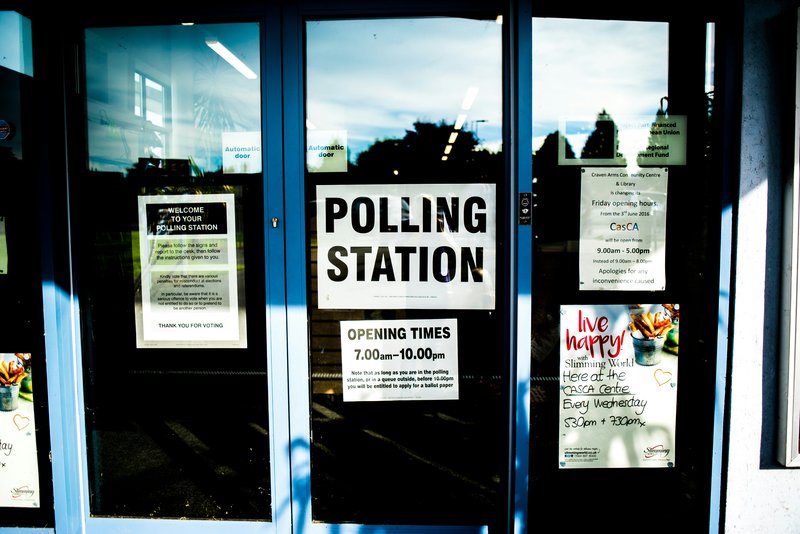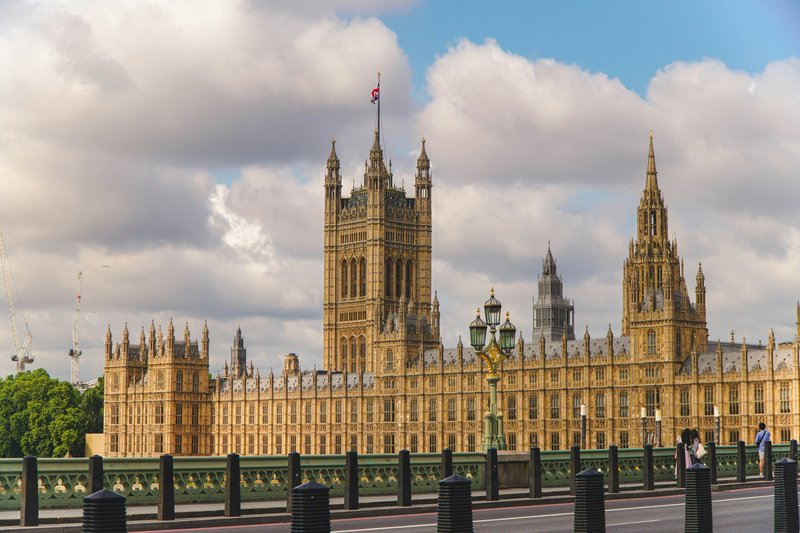More ambition is needed for the Elections Bill to protect our democracy from the harms of misinformation and disinformation
With MPs returning from the summer break, attention will focus on the government’s elections strategy that was published days before recess – and the Elections Bill that will implement it.
Despite emphasising that our “democracy is being threatened by misinformation”, the strategy falls short of tackling this serious threat and risks being a missed opportunity. A bolder vision is needed for the Elections Bill to safeguard our democracy against misinformation and disinformation, strengthen the integrity of elections and restore trust in politics.
Full Fact’s key recommendations for the Elections Bill
- Upgrade the Online Safety Act, requiring online platforms to take more responsibility to identify and manage the risks of democratically harmful material.
- Stronger rules to deal with political deepfakes by updating the offence of false statements about candidates and requiring campaigners to label political deepfakes.
- A comprehensive, public library of political adverts to increase transparency and accountability for advertising material, and preserve it as a historical record.
- A regulatory framework to prevent misinformation and disinformation in political advertising, overseen by an independent and sufficiently resourced committee.
- Transparent and accountable systems for dealing with electoral information incidents to ensure effective handling of incidents that undermine the fairness of a UK election.
- Increased investigative powers for the Electoral Commission to bolster its ability to undertake its activities, including in relation to social media companies.
For more details on our recommendations, please see our briefing here.
Join 72,953 people who trust us to check the facts
Sign up to get weekly updates on politics, immigration, health and more.
Subscribe to weekly email newsletters from Full Fact for updates on politics, immigration, health and more. Our fact checks are free to read but not to produce, so you will also get occasional emails about fundraising and other ways you can help. You can unsubscribe at any time. For more information about how we use your data see our Privacy Policy.
Small steps in the right direction
As our recent blog highlighted, the UK’s weak laws leave voters and our democracy exposed to the harms of misinformation and disinformation. A chorus of academics, civil society organisations, regulators and other experts have highlighted the vulnerability of our democratic processes.
Misinformation is one of the public’s biggest concerns in elections. Sir Keir Starmer has also expressed concern, recently telling a Parliamentary committee that “I was very worried at the last election about misinformation, and I am very worried about the potential for misinformation in future elections in this country.” The elections strategy contains some limited measures to address this, in particular:
- The government will consult political parties on a code of conduct for campaigning to give the public “more confidence that campaigns are being conducted with honesty and integrity and are not intentionally attempting to mislead the public.”
- Increasing transparency and closing key loopholes in the political finance regime will help to prevent illegal foreign money being channelled into political campaigns.
- The maximum fine that the Electoral Commission can impose for each offence will increase from £20,000 to £500,000, and the Commission will be given new powers to share information with certain other authorities.
- Unregistered third-party campaigners (excluding individuals) will be required to include digital imprints in their ‘organic’ campaign material, about who is promoting it. This is intended to stop misleading content from spreading without details of its origin.
- Campaign material promoted by or on behalf of political entities will need to include details of the affiliated political party. This aims to increase transparency for voters and deal with campaign material that is designed to mislead.

A more robust plan is needed for the Elections Bill
These proposals are a starting point to build from but do not match the scale of the problem. Last year, both the World Economic Forum and the United Nations identified misinformation and disinformation as the biggest risks facing the world. The Organisation for Economic Cooperation and Development has described them as "some of the biggest threats to democracy in the 21st century.”
Unless the government comes forward with more ambition in the Elections Bill, they will not deliver on their objectives of protecting our democracy and restoring trust in politics.
Here are the key areas that need to be included in the Bill.
Upgrade the Online Safety Act
The strategy highlights the need to “guard newly enfranchised young people against the potential effects of online mis- and disinformation” and notes that the Online Safety Act requires online companies to take action against illegal misinformation and disinformation.
But the Online Safety Act does not cover most misinformation and disinformation and there are gaps in the types of illegal content that companies need to address. As the Science, Innovation and Technology Committee recently concluded, the Act “cannot keep the UK public safe as it was not designed to tackle misinformation.”
The Elections Bill should upgrade the Act by requiring online services to tackle more categories of illegal content relating to elections (false statements about candidates; and undue influence, which can include suppressing voters) and to tackle material that harms our democracy, whilst ensuring that freedom of speech is protected.
Media and political literacy initiatives
The strategy does not set out a plan to increase political and media literacy to tackle misinformation. People aged 18-24 have reported seeing more misinformation about UK elections than older groups. With the Elections Bill due to lower the voting age to 16, young people need effective methods to separate the reliable and evidence-based from the false and misleading.

As Shout Out UK and the All-Party Parliamentary Group on Political and Media Literacy highlighted, “the success of this franchise extension is inextricably linked to the robust implementation of Political and Media Literacy education.”
The Electoral Commission should be sufficiently resourced to research and deploy effective public information campaigns about deepfakes and misinformation and disinformation during elections; and to help raise media literacy and counter misinformation and disinformation (alongside Ofcom, civil society, grassroots organisations, schools and others) as part of a wider increase in government spending on media literacy.
Stronger rules to deal with political deepfakes
The strategy notes the efforts of the government’s Defending Democracy Taskforce to tackle harassment and intimidation of those involved in public life, including identifying gaps in the law – but there are no specific measures to deal with the growing threat of harmful political deepfakes.
The UK’s laws have not kept pace with the harms of AI-generated political videos and audio. Last year, the Joint Committee on the National Security Strategy flagged the risk of hostile actors influencing the information landscape with deepfakes, which are already being used to mislead and cause disorder. In opposition, Labour committed to urgently regulate companies developing powerful AI, which could be used to disrupt elections, but this regulation has not yet materialised.
Political campaigners should be required to clearly label any deepfakes with the person and party behind it. The Elections Bill should also close a hole in the law highlighted by the Electoral Commission, by updating the offence that protects candidates from false statements to expressly include deepfakes.
A comprehensive digital library of political adverts
The strategy proposes extending the digital imprint rules to help voters “better understand the origin and intent of the material they see, enabling them to make political choices with greater confidence.” But more transparent labelling of campaign material is only part of the solution.
A series of independent expert bodies, including the Electoral Commission, have previously called for comprehensive digital libraries of political adverts. This would enable journalists, researchers and the public to scrutinise campaigns, hold parties and platforms to account, and identify misinformation and disinformation.
This important material should be made available in the National Archives, to preserve the record of how elections were fought online and how influence was exerted, without barriers to transparency.

Regulation of non-broadcast political advertising
Non-broadcast political advertising is currently not regulated in the UK. This means no one can intervene to stop parties from running false or misleading claims in their election campaigns.
The proposed code of conduct for campaigning, noted above, is an important step forward. Full Fact has long called for honest campaigning and independent regulation of political advertising. However, the details of this proposal remain to be seen, including the body responsible for ensuring compliance with the rules, and its powers, resources and level of independence.
The Advertising Standards Authority previously called for a committee of regulatory experts to oversee political advertising. This call was echoed by the Select Committee on Democracy and Digital Technology. The Elections Bill is an opportunity to establish this committee.
Transparent systems for dealing with information incidents
Despite its focus on “futureproofing our democracy” the strategy does not include new measures to deal with information incidents that could threaten the fairness of a UK election. Nor does it increase the transparency and accountability of the disparate bodies involved in electoral security.
Full Fact recently co-developed a briefing with Demos that explored how to prevent an information emergency, including during an election period. The proposed policy of strengthening the government’s crisis response protocols and procedures for responding to information threats, including foreign interference, should be reflected in the Elections Bill.

Next steps
Full Fact will be monitoring the government’s plans and working on amendments to strengthen the Elections Bill as it goes through Parliament – and monitoring progress towards key manifesto commitments as part of our Government Tracker project.
The Bill is an opportunity for the government to safeguard our democracy and elections, at a time of crisis for anyone who cares about verifiable facts and a crisis of trust in our political system.